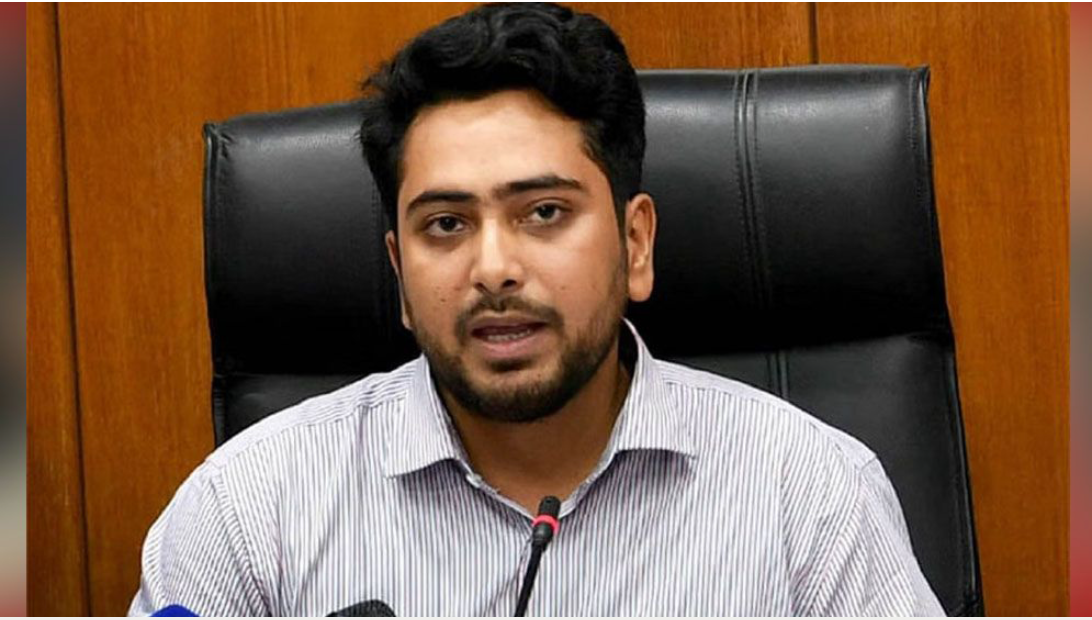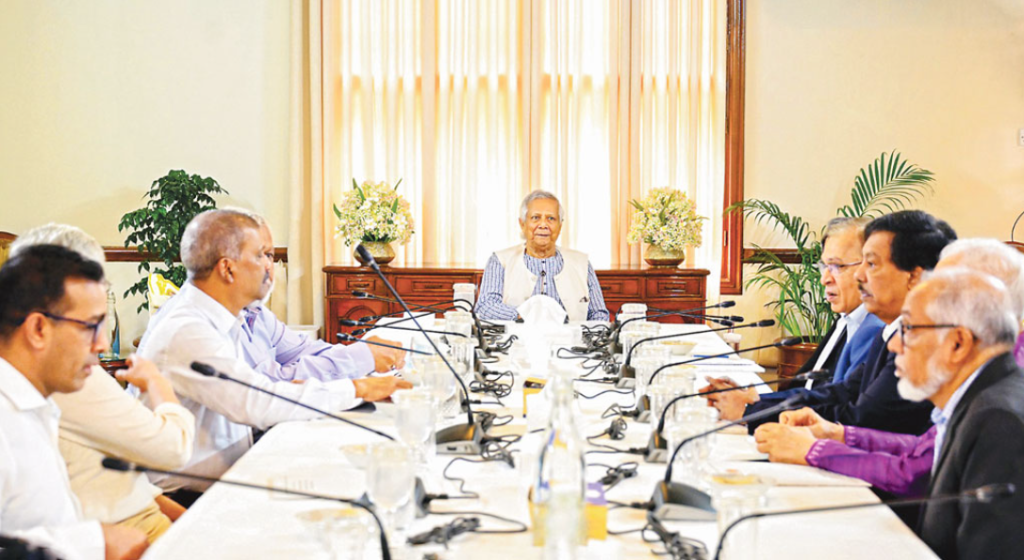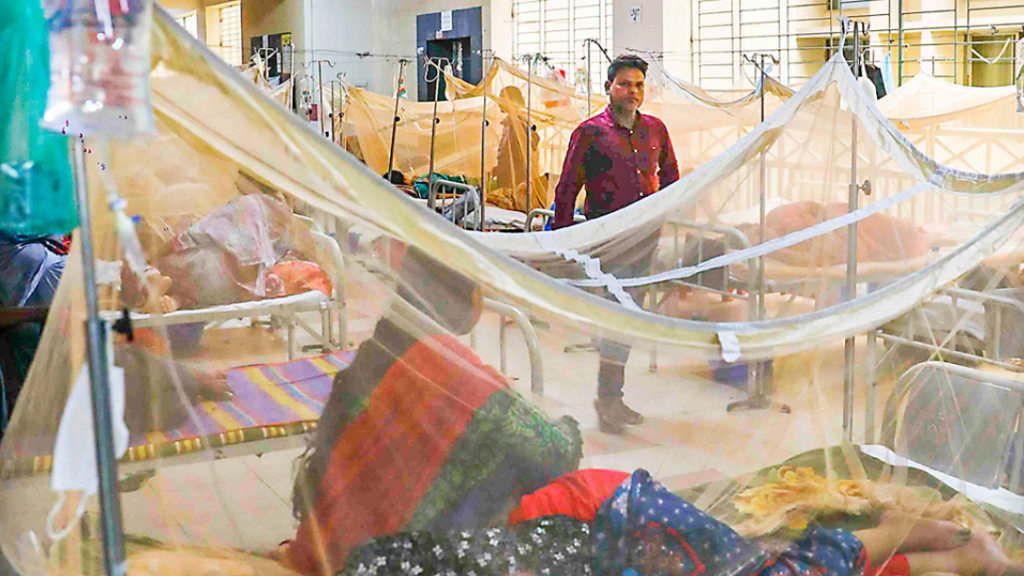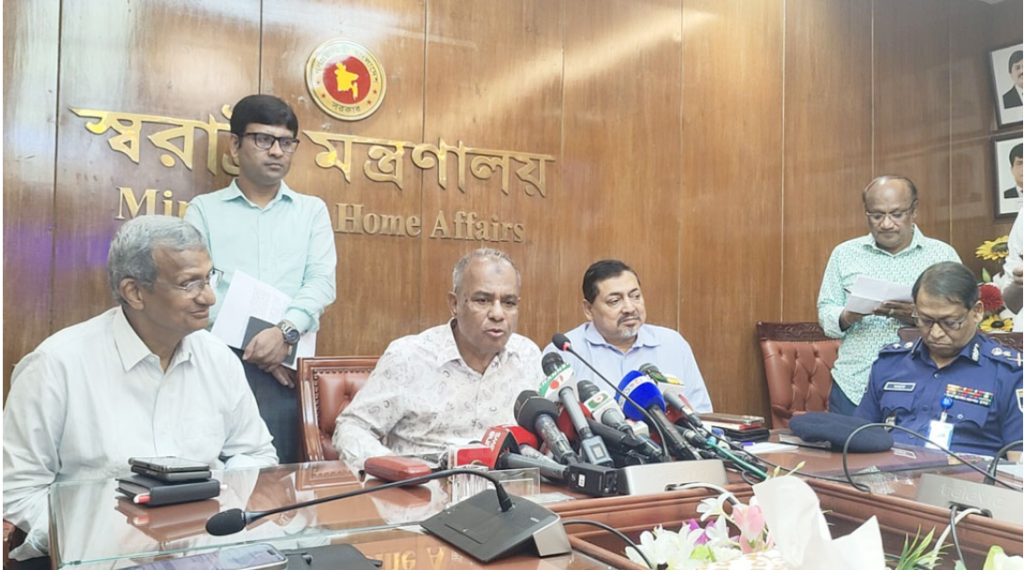Desk Report:
National Citizens Party (NCP) convener Nahid Islam said, “On the night of July 14 last year, Sheikh Hasina called the protesters the children and grandchildren of Razakars and took a stand in favor of the quota system in a press conference. Basically, this statement gave legitimacy to the attack on the protesters. Because, we have always seen that if any legitimate movement was held against the government, the legitimacy of the movement was undermined by calling them Razakars. That night, students of Dhaka University and other educational institutions in the country took to the streets in protest.”
Nahid Islam said these words while testifying against ousted Prime Minister Sheikh Hasina and three others in a case of crimes against humanity committed in the killings carried out across the country in July-August during the anti-discrimination student movement on Wednesday.
This testimony was taken at the International Crimes Tribunal-1 headed by Justice Md. Golam Mortuza Majumder.
47 people have testified in this case. The accused in the case, Sheikh Hasina and former Home Minister Asaduzzaman Khan Kamal, are absconding. The other accused, former Inspector General of Police (IGP) Chowdhury Abdullah Al-Mamun, has given his statement as a witness.
Nahid Islam said in his statement, ‘In 2018, a major student movement centered on quota reform took place. At that time, the police and Chhatra League attacked the Shahbagh area to suppress the movement. The movement intensified in the wake of the attack. At one stage, Sheikh Hasina was forced to announce the abolition of quota in parliament. Although we wanted quota reform. A few days later, Sheikh Hasina said in a press conference that she spoke about the abolition of quota out of anger.
‘In 2019, the DUCSU elections were held. I contested the post of Central Cultural Secretary from the panel of quota reform activists in that election. We were not allowed to win due to irregularities in the election. Chhatra League was given the majority of the posts. Later, we protested against the Chhatra League’s mass room-guestroom torture culture and other irregularities and atrocities in the university. In 2023, we established a student organization called Democratic Chhatra Shakti. The main goal of this organization was to work on issues related to the interests of students and eliminate various irregularities.’
He said, ‘In the wake of the writ, the High Court on June 5 last year canceled the notification regarding the cancellation of quota and reinstated the quota system. On that day, we protested against the verdict at Dhaka University. Later, protests were also held in other universities. We gave the government an ultimatum to solve the problems related to quota reform by June 30. Since the government did not respond, we started a movement simultaneously in all universities under the banner of the anti-discrimination student movement from July 1. Our movement had a series of programs on July 2, 3, and 4. In order to intensify the movement, we announced a program called “Bangla Blockade” across the country on July 7. Students from all over the country expressed their solidarity with us and participated in the movement.’
In his statement, the NCP convener said, ‘On July 17, we announced a silent funeral and coffin procession program across the country, including Dhaka University, in protest of the murder. Then the UGC announced the closure of all universities in the country. That day, BGB, police and RAB surrounded the entire university. When the coffin procession started after the silent funeral, the police fired sound grenades and rubber bullets at the procession. That day, the DGFI pressured us to withdraw our program and hold a dialogue with the government.’
He said, ‘On the night of July 17, we announced a nationwide “complete shutdown” program and called on all students and people from all walks of life across the country to participate in the program. On July 18, students from all walks of life across the country took to the streets. Especially students from private universities and madrasas staged a massive resistance on the streets that day.
‘That night, the internet was shut down across the country. On July 19, the police and Awami terrorists opened indiscriminate fire on the students and the crowd. Many were injured and killed. We understand that the government has taken complete control of the electronic media. Because no news of our movement and the injured and killed was being broadcast in any media.




